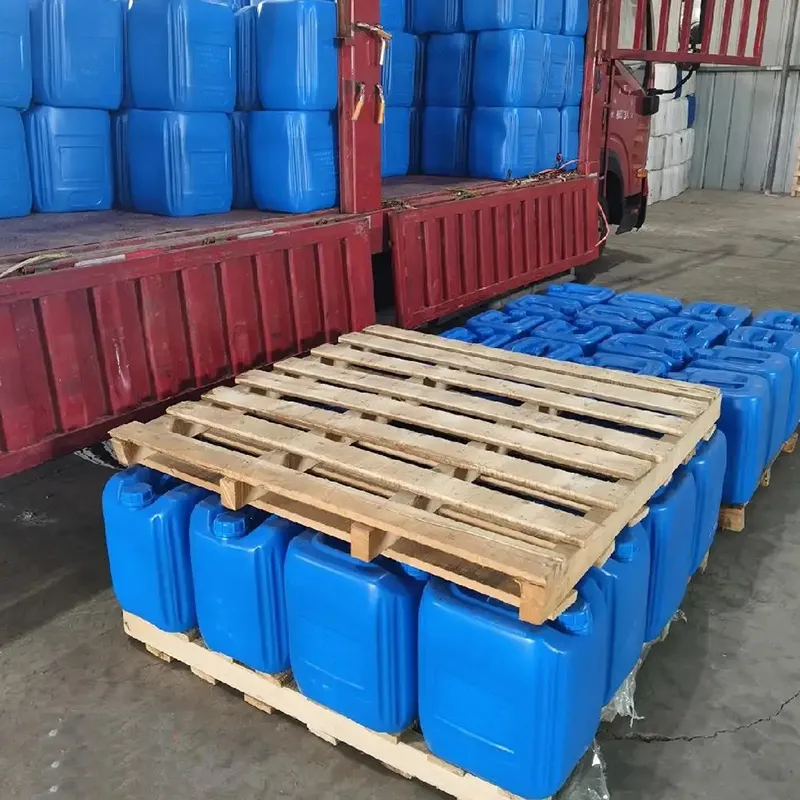
Exploring the Applications and Benefits of Fluorinated Solvents in Industrial Processes
The Rise of Fluorinated Solvents Applications, Benefits, and Environmental Concerns
Fluorinated solvents have carved out a significant niche in various industrial applications due to their unique chemical properties and performance characteristics. These solvents, distinguished by the presence of fluorine atoms in their molecular structure, offer remarkable stability, low surface tension, and high solvency power, making them indispensable in numerous sectors, including electronics, pharmaceuticals, and specialty cleaning.
One of the primary advantages of fluorinated solvents is their thermal and chemical stability. They can withstand extreme temperature variations and resist degradation from exposure to corrosive substances, making them ideal for cleaning and degreasing intricate components in the electronics manufacturing industry. This characteristic is essential in producing high-quality electronic devices that require precision cleaning to ensure optimal performance and reliability.
In the pharmaceutical sector, fluorinated solvents play a crucial role in synthetic organic chemistry. They are often employed in the extraction and purification of active pharmaceutical ingredients (APIs), given their ability to dissolve a wide range of compounds. This solubility is particularly beneficial in the development of novel drugs, where the efficient extraction of specific molecules is paramount. Furthermore, their relatively low toxicity compared to traditional solvents has led researchers to embrace fluorinated alternatives in drug formulation processes.
Another interesting aspect of fluorinated solvents is their application in the dry cleaning industry. Many dry cleaning processes require solvents that can effectively dissolve greases and oils without damaging delicate fabrics. Fluorinated solvents meet this criterion, providing efficient cleaning while preserving the integrity of various materials. Moreover, their low evaporation rates ensure a minimized environmental impact compared to conventional dry cleaning solvents.
fluorinated solvents

Beyond their industrial applications, fluorinated solvents are also being explored for their potential in innovative product development. For instance, their properties are advantageous in creating advanced coatings and surface treatments that improve material performance and longevity. Fluorinated coatings are highly resistant to water, oils, and dirt, making them suitable for applications in automotive, aerospace, and consumer goods sectors where durability is critical.
Despite the numerous advantages associated with fluorinated solvents, there are growing environmental concerns that warrant consideration. The production and use of certain perfluorinated compounds (PFCs), a subset of fluorinated solvents, have raised alarms regarding environmental persistence and potential health risks. PFCs can accumulate in the environment and have been linked to adverse effects on human health, leading to stricter regulations and a push towards finding safer alternatives.
This dichotomy has prompted researchers and industry stakeholders to focus on developing fluorinated solvents that minimize environmental impact while maintaining performance efficacy. Innovations in the chemical synthesis of fluorinated compounds aim to create molecules that break down more readily in the environment or possess less harmful attributes. Additionally, there is a concerted effort to explore biodegradable alternatives that can emulate the desirable properties of traditional fluorinated solvents without the associated risks.
The market's response to these environmental concerns has also been notable. Many companies are investing in sustainable practices and green chemistry initiatives, aimed at reducing their reliance on hazardous substances. This trend reflects a broader commitment to corporate social responsibility and leadership in environmental stewardship.
In conclusion, fluorinated solvents continue to play an essential role in various industries due to their unique properties and applications. Their high stability, excellent solvency, and effectiveness in niche markets have solidified their position as vital components in manufacturing and cleaning processes. However, the environmental implications associated with certain fluorinated compounds necessitate ongoing research and development to ensure that their benefits do not come at an unsustainable cost. As industries evolve, the challenge remains to balance performance demands with ecological responsibility, ushering in an era that prioritizes both innovation and sustainability. The future of fluorinated solvents, therefore, hinges on our ability to adapt and innovate, ensuring they contribute positively to industry without compromising the planet’s health.
-
Buy High-Quality Trichloroisocyanuric Acid for Sale | TCCA 90% SupplierNewsAug.30,2025
-
Pure Sodium Dichloroisocyanurate Dihydrate | Powerful DisinfectantNewsAug.29,2025
-
Industrial Chemicals: Quality & Purity for Every IndustryNewsAug.28,2025
-
Nitrile Rubber Honoring Strict Production StandardsNewsAug.22,2025
-
Aspartame Ingredients Honoring Food Safety ValuesNewsAug.22,2025
-
Fertilizer for Balanced Plant NutritionNewsAug.22,2025
-
Cyanide Gold Processing with High Purity AdditivesNewsAug.22,2025
Hebei Tenger Chemical Technology Co., Ltd. focuses on the chemical industry and is committed to the export service of chemical raw materials.
-

view more DiethanolisopropanolamineIn the ever-growing field of chemical solutions, diethanolisopropanolamine (DEIPA) stands out as a versatile and important compound. Due to its unique chemical structure and properties, DEIPA is of interest to various industries including construction, personal care, and agriculture. -

view more TriisopropanolamineTriisopropanolamine (TIPA) alkanol amine substance, is a kind of alcohol amine compound with amino and alcohol hydroxyl, and because of its molecules contains both amino and hydroxyl. -

view more Tetramethyl Thiuram DisulfideTetramethyl thiuram disulfide, also known as TMTD, is a white to light-yellow powder with a distinct sulfur-like odor. It is soluble in organic solvents such as benzene, acetone, and ethyl acetate, making it highly versatile for use in different formulations. TMTD is known for its excellent vulcanization acceleration properties, which makes it a key ingredient in the production of rubber products. Additionally, it acts as an effective fungicide and bactericide, making it valuable in agricultural applications. Its high purity and stability ensure consistent performance, making it a preferred choice for manufacturers across various industries.





